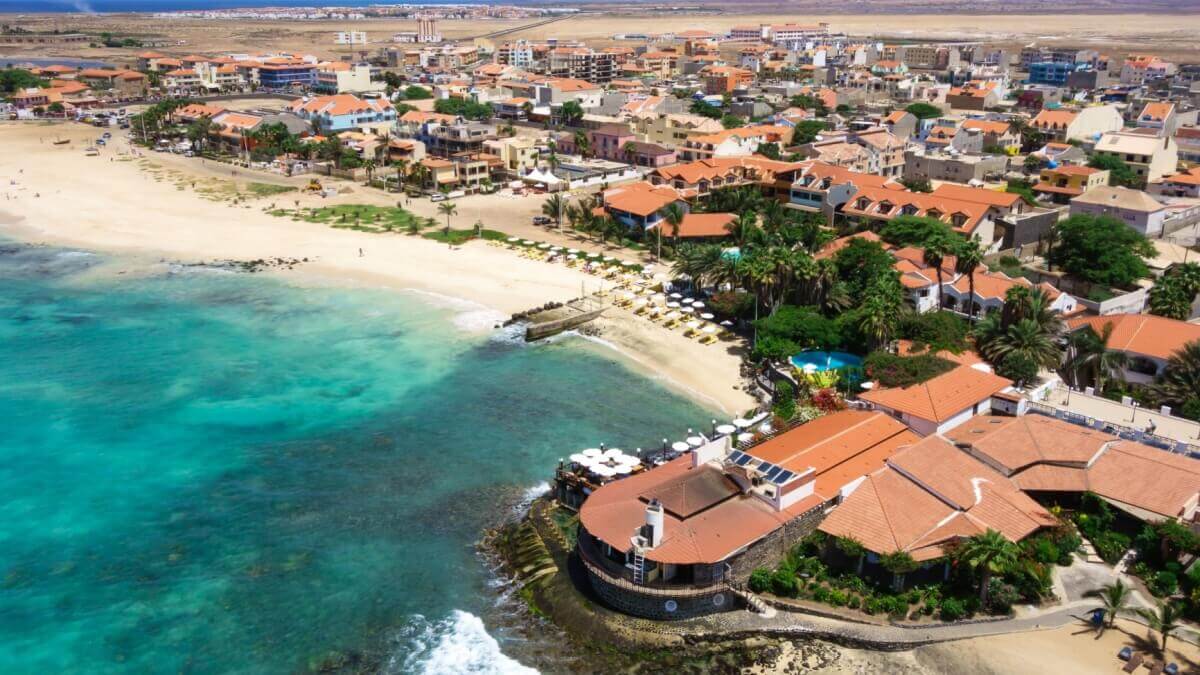Hays travel card review: features, fees and more
Read our Hays travel card review, covering exchange rates, limits, fees and benefits.

Planning a trip to Cape Verde? Whether you're dreaming of relaxing on a beach or hiking through lush mountains, you’re likely also thinking about the details of your travel budget.
In this guide, we’ll walk you through the best currency to take to Cape Verde from the UK. We’ll also look at the payment methods commonly accepted in Cape Verde and help you decide which one is the most convenient for your stay.
Although it’s usually best to have the destination currency with you when travelling, that’s not the case when it comes to Cape Verde. The Cape Verdean escudo, the country’s official currency, is non-convertible. This means it’s only available within Cape Verde and cannot be taken out of the country, so you can’t bring it back to the UK at the end of your holiday.¹
With this in mind, the best currency to take to Cape Verde is the euro. Euros are widely accepted across the country and can also be easily exchanged for the local currency. The exchange rate between the euro and the escudo is fixed, so you won’t have to worry about fluctuations.²
If you need a cost-effective way to convert your GBP to EUR, check out the Wise account from the money services provider Wise. You can send, spend and convert money in 40+ currencies at great mid-market exchange rates and low, transparent fees. It’s not a bank account but offers some similar features, and your money is safeguarded.
➡️ Learn more about the Wise account
Because the Cape Verdean escudo is a closed currency, it’s not available for exchange outside the country. However, since euros are widely accepted, it’s a good idea to buy some while you’re still in the UK.
If possible, try to avoid exchanging money at the airport, as the exchange rates there are poor and often come with high fees. It’s better to sort out your cash at a bank or currency exchange office in the city.
| 📚 Read more: Best ways to spend money while travelling abroad |
|---|
Planning a travel budget for Cape Verde involves considering several different factors. The type of experience you’re looking for, the level of comfort you prefer and the areas you plan to visit will all affect your spending. The good news is that Cape Verde is much more affordable than the UK, so your money will go further and give you the chance to enjoy more of what the destination has to offer.
For example, a three-course meal for two in Cape Verde costs £39 on average. Choosing a cheaper restaurant can bring that cost down to around £4 per meal. Drinks and coffee are also noticeably cheaper, typically costing about half of what you’d pay in the UK.³
It’s not easy to pinpoint exactly how much money you’ll need, as it really depends on how you like to travel. However, a typical mid-range daily budget is around £100, covering things like accommodation, transport, food and activities. If you’re travelling on a tighter budget, it’s possible to manage with around £50 a day.⁴ These estimates can help you get a general idea of what to expect, so you can plan accordingly based on your spending style.
You can use both cash and cards in Cape Verde, but cash is still king.⁵
Escudos and euros are commonly accepted, although you might get a better deal if you pay in the local currency. Try to have smaller bills on you for tips and smaller purchases, as well as bargaining and transportation.⁵
Debit cards and credit cards, especially Visa and Mastercard, are widely accepted in tourist areas. American Express is not commonly used, so it’s best not to depend on it during your trip. However, some local restaurants and smaller shops might only take cash, so it’s a good ideal to check beforehand.⁵
If you’re unsure whether to use cash or cards in Cape Verde, cash is generally the better choice. That said, using a mix of both can help you get the most out of each payment method.
Cards will likely be accepted in hotels and more tourist-friendly spots, so using a credit card for larger expenses is one of the safest options. Remember to choose to pay in the local currency when given the choice at checkout.
Another good option are travel and debit cards, since they can be useful for keeping your spending in check.
While cashless methods are becoming more common in Cape Verde, having some cash on hand is still a necessity. Not only is it essential for tips, small payments and street food, it’s often the only option available. If you’re not able to get escudo, make sure you at least have some euros on you, since they’re commonly accepted across the islands.
Sources used:
Sources last checked on date: 12-Aug-2025
*Please see terms of use and product availability for your region or visit Wise fees and pricing for the most up to date pricing and fee information.
This publication is provided for general information purposes and does not constitute legal, tax or other professional advice from Wise Payments Limited or its subsidiaries and its affiliates, and it is not intended as a substitute for obtaining advice from a financial advisor or any other professional.
We make no representations, warranties or guarantees, whether expressed or implied, that the content in the publication is accurate, complete or up to date.

Read our Hays travel card review, covering exchange rates, limits, fees and benefits.

Read our TUI travel card review, covering exchange rates, limits, fees and benefits.

Read our guide on ATMs abroad including networks, locations and tips on how to avoid ATM fees abroad.

If you’re a Barclays customer, have a Barclaycard or hold a Barclays debit card, get familiar with fees and how to use your card abroad in our article.

What is the best currency to take to Tunisia? Read our guide on currency in Tunisia, accepted payment methods and more.

Read our roundup of the best UK credit cards for airport lounge access, including cards from Amex, Barclaycard, HSBC and Santander.